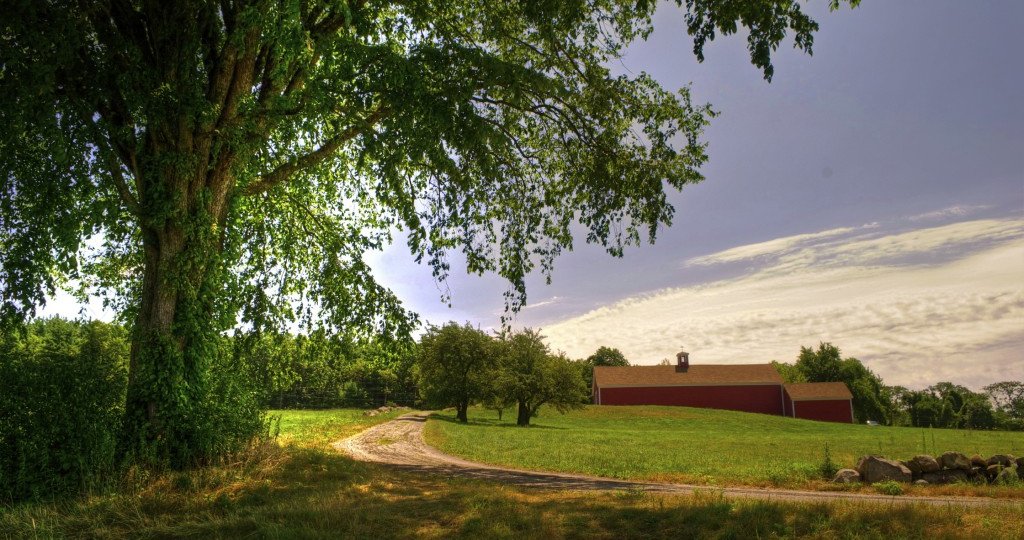
Warmer weather is on the way, and the cold will soon bid adieu. With little doubt, getting out and about will hold greater appeal.
One stop to consider while planning your spring to-do list is Fruitlands in Harvard, Massachusetts. Undeniably, this locale has a fascinating history. Here is a bit of info pertaining to the historic site.
Amos Bronson Alcott, a Connecticut-born philosopher, teacher, and writer, dreamed about creating an experimental, Utopian society. He traveled to England to garner support (and funds) for the lofty ambition. While in England, Alcott met Charles Lane. Alcott’s idea captivated the Brit and he ultimately backed the endeavor.
In 1843, Lane purchased Wyman Farm, a 90-acre property located in Harvard: the land included a run-down house and barn. It is there Alcott and Lane founded Fruitlands, a Transcendentalist-minded, mid 19th century commune. Residents of the community planted crops and lived off the fruits of the land. They eschewed all animal products and aspired to develop more perfectly the human spirit.
Fruitlands was intended to be a simplistic, self-contained society, meaning all work was accomplished from within. The founders were suspect of worldly economic dealings and wished to separate themselves from what they perceived as outer ills. Still, inhabitants were not beholden to a doctrine or creed and could come and go as they pleased. Actually, some members were there for only a short period of time.
In addition to Alcott and Lane, other Fruitlands residents included Abigail Alcott, reformer wife of Alcott and one of two adult females: Louisa May Alcott, Alcott’s daughter and future author of the beloved novel, Little Women: Isaac Hecker, New York baker and later-founder of the Catholic Paulist Order: and John Palmer, succeeding owner of Fruitlands.
The Fruitlands experiment lasted for only seven months. Harsh New England winters, the lack of animal labor, and Alcott and Lane’s zeal for philosophically proselytizing instead of more effectively working the land, proved too demanding to sustain the project.
All the same, Fruitlands has earned an impressive place in history. In fact, Alcott befriended prominent types like Henry David Thoreau and Ralph Waldo Emerson largely because of his inventiveness. These free thinkers were greatly impressed by Alcott’s courageous manner and pioneering vision.
What happened to the property?
Fortunately, the land is still available for visitors to enjoy! Walk through tours include historic buildings, exquisite winding trails and scenic vistas, and an art museum. Additionally, adult learners can sign up for art classes, workshops, gallery talks, and even off-site programs. Winter hours are still in effect. However, as of April 15, the café will re-open, and the main visiting schedule will resume.
Sound intriguing? For particulars regarding this utopian timepiece, go to http://www.fruitlands.org/

